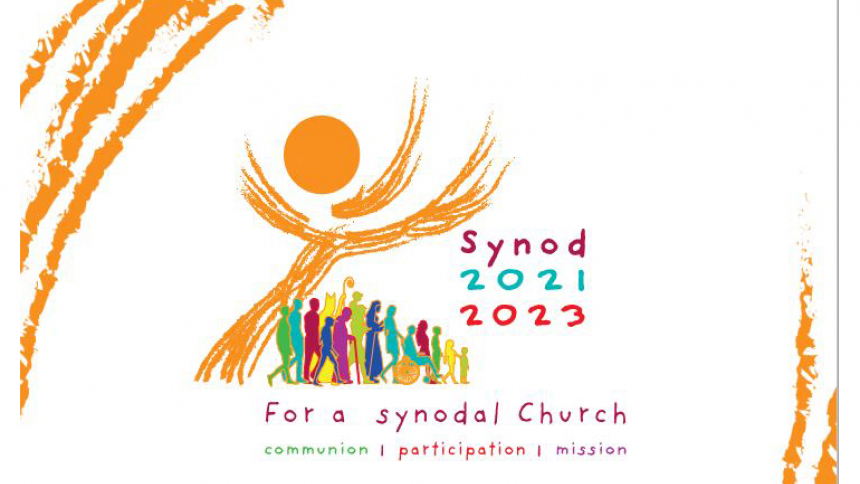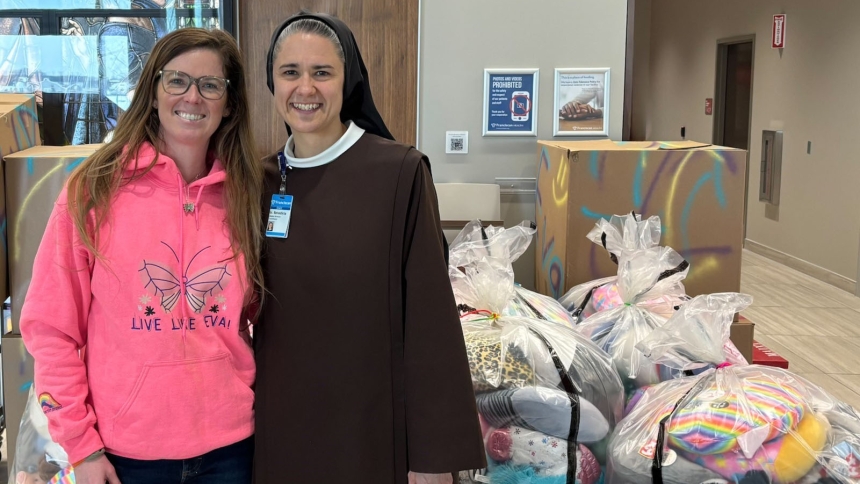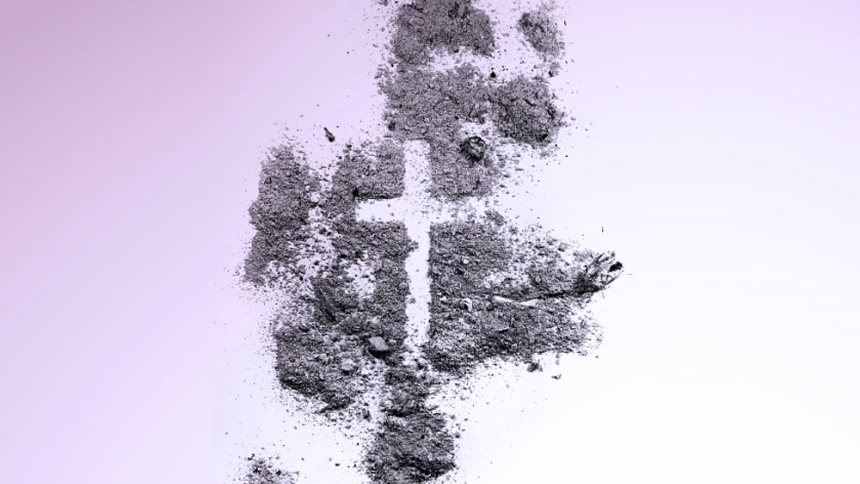
COMMUNION, PARTICIPATION, MISSION
Pope Francis invited the whole Catholic Church to engage in a “Synod on Synodality,” a two-year process of listening and dialogue that began with a solemn opening in Rome on October 9 and 10, 2021 with each individual diocese and church celebrating the following week on October 17. The synodal process will conclude in 2023 with bishops gathering in Rome.
As the Diocese of Gary prepares to celebrate the first phase of the local synod with a Mass and reflection at the Cathedral of the Holy Angels in Gary on Feb. 6, Bishop Robert J. McClory and other diocesan leaders are hoping to continue the important discussions that started with a diocesan synod in 2017.
Bishop McClory said prior to Pope Francis’s announcement that it became clear by the fall of 2020 that the Diocese of Gary, along with the rest of the Church, needed to both “survive and thrive in the midst of COVID,”
Another main area of focus for the bishop since his ordination in 2019 involves building upon the diocese’s Synod 2017 and taking it to the next level. The onset of the coronavirus pandemic, however, limited the ability to fully engage with parishes on the synod follow-up from 2017. After numerous surges and decreases in the number of COVID-19 cases, when it was finally looking like the pandemic might be improving, the Holy Father called for a universal synod on synodality.
“When it was initially announced in May of 2021, it was a perfect opportunity for us to build upon Synod 2017, and I didn’t have to create a need for that,” explained Bishop McClory. “It was already expressed by the Holy Father that it was something he wanted all of us to do, so I was actually quite encouraged when I heard that news.”
Bishop McClory said he is grateful that the diocese had so many faithful men and women who actively participated in the 2017 synod process and who were also engaged in the opportunity to revisit that synod experience, while looking to the future in light of what’s happened since that time. He added that he feels the Diocese of Gary should be very proud of the work of Synod 2017.
“For those who participated directly in that, I would say we received those gifts of the synod, and we’re trying to apply them and channel them in a way that is cognizant of all the changes that occurred in the last four-and-a-half years as we navigate our way through COVID,” said Bishop McClory.
To initiate Synod 2021-23 the diocese held a number of listening sessions that included an all-priests meeting, a deacon retreat, a Diocesan Pastoral Council meeting, and seven focus groups designed to solicit input from segments of the faithful whose voices can sometimes go unheeded. Facilitated conversations were held with teenagers, young adults, representatives of various inter-cultural ministries and women religious. In all, more than 250 individuals participated.
“In my view, they all went quite well,” said Deacon Dan Lowery, the diocese’s liaison for the synod. “Participants were quite frank with respect to their concerns but, following Pope Francis, hopeful and open to the work of the Holy Spirit as well.”
Bishop McClory agreed, stating the meetings had a tone of pragmatic hopefulness. Among those comments that stood out to the bishop were those that created a deeper reflection on the identity as individual Catholics, Catholic families, Catholic organizations, Catholic parishes, Catholic schools, and Catholic ministries.
“That was coupled with a desire to express that in our mission – everything from evangelization efforts, to works of mercy, to how we invite people to experience our life of faith, and how we share our faith with others,” he said.
Therefore, Bishop McClory said, what he felt he was hearing during the listening sessions was more of a conversation about the culture, identity and mission of the Church.
“I would say it was less explicitly programmatic. I think we were talking about very foundational issues – about what it means to be a Catholic Christian and what it means to be the Catholic Church into the future. Those are invigorating conversations to have,” he said.
Bishop McClory explained that during this foray into the latest synod, the diocese was trying to identify those who are not as commonly involved or explicitly included the consultation of the Church, and did not want to replicate what was done in 2017, but instead build upon it.
“The 2017 Synod would have had a different methodology of engagement and we didn’t really need to repeat that, but we needed to ensure that we had every parish represented,” said Bishop McClory. “The way we filled in some potential gaps was through the use of focus groups. I think the Holy Father very much encouraged us to hear as many voices as we can.”
He added, “As a Church we are the Body of Christ, and the Body of Christ is not comprised solely of the bishops and the priests and the professional Catholics, but it’s all of us who are baptized into the Body of Christ and so we all have a part to play.”
Bishop McClory said it was helpful to provide a refresh on some of the technology and methodology in the most recent synod discussions. For example, the use of word cloud technology allowed people to share their response digitally to a particular question in a word or two. The more answers that aligned and were of the same nature automatically appeared more boldly and near the center of the word cloud. This allowed those at the session to get quick impressions of responses made to propositions and see the level of support for each.
“I think we came up with different tools that allowed everybody to at least give an impression and a response – and we could all see it simultaneously, so I thought that was an interesting tool,” remarked the bishop.
On Feb. 6, Bishop McClory will unveil a pastoral letter that will address in a broad thematic manner the subject of missionary discipleship. He said his goal is not to lose any of the key points developed in 2017 but to simplify and focus on two primary areas under which conversations can be held – How am I living as a disciple of Christ? and How am I living as a missionary of Christ?
Every parish will be invited to have its own conversations and consultations in a way that works at its parish level. Bishop McClory said parishes may choose to revisit the parish plans developed after the 2017 synod and have a discussion on where it is now, perhaps developing some new points of action.
Mike Wick, diocesan chief of staff, said Bishop McClory is taking the synod baton that was passed to him and making it his own with his own gifts, with his own experience in his own sense of renewed vision.
“This has been an opportunity for the people to get to know the bishop because when COVID hit everybody was on lockdown with very limited exposure. Obviously, he has done writings and his videos, but this has been an opportunity for the broader community in Northwest Indiana to get to know him as our shepherd.”
Wick added, “Journeying together through spiritual conversation is very much involved with discernment, not necessarily decision. The synod reboot has shown us that the process of discernment is needed before any decisions are made, and that takes listening.”
Deacon Lowery said his hope is that parishes and key Catholic institutions in the diocese will embrace the consultative discernment process coming out of the current synod as an opportunity to listen ever more closely to the promptings of the Holy Spirit. He feels this work cannot be done without honest conversation and a sustained commitment.
“It won’t be a matter, I suspect, of working ‘harder’ and doing ‘better’ so much as responding in new ways and moving in new directions at the prompting of the Holy Spirit,” he said.



